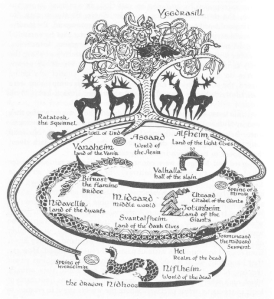
Sorry for the lack of posts lately. Between end-of-term grading and preparing a conference paper, I haven't had much time. But speaking about time...
I'll be attending the International Congress on Medieval Studies in Kalamazoo. It's the biggest specifically medieval academic conference. I don't have time to write much more about it now, but here's a summary of my paper, titled "Linguistic Relativity Revisited: Language and Thought in Old English":
Ever since Edward Sapir and Benjamin Lee Whorf proposed that there was a connection between language, thought, and culture, the concept of linguistic relativity has been a highly controversial topic. The famous (or notorious) Sapir-Whorf hypothesis proposed that differences in linguistic categories from one language to the next determine or at least influence the ways in which speakers of those languages think about the world. For much of the latter half of the 20th century, this notion fell out of favour and has been strongly rejected. For instance, Steven Pinker states unequivocally that the theory is “wrong, all wrong”, and instead argues for an underlying language common to all people, which he calls ‘mentalese’. However, in the past decade new evidence has come to light, pioneered in particular by cognitive scientist Lera Boroditsky, that reopens the debate on linguistic relativity. Boroditsky’s research, bolstered by extensive experimental data, suggests that language differences can have profound differences on the way speakers think about the world.
This paper will explore the implications of this research for the understanding of Old English language and thought. In particular, I will focus on linguistic categories involving time and tense, including the use of spatiotemporal terms for time. Old English speakers were powerfully influenced by the very different language and culture of the Latin speaking Christian missionaries. I argue that exploring the differences between these languages helps explain the development of the language, literature, and culture of the Anglo-Saxons.
In the paper, I'll not only be drawing on Boroditsky's work, I'll also mention the recent controversial paper by M. Keith Chen which I've blogged about before (here and here), and looking back at an old book by Ernst Bauschatz on Germanic notions of time. So though short on time, I'll be speaking mostly about time.
